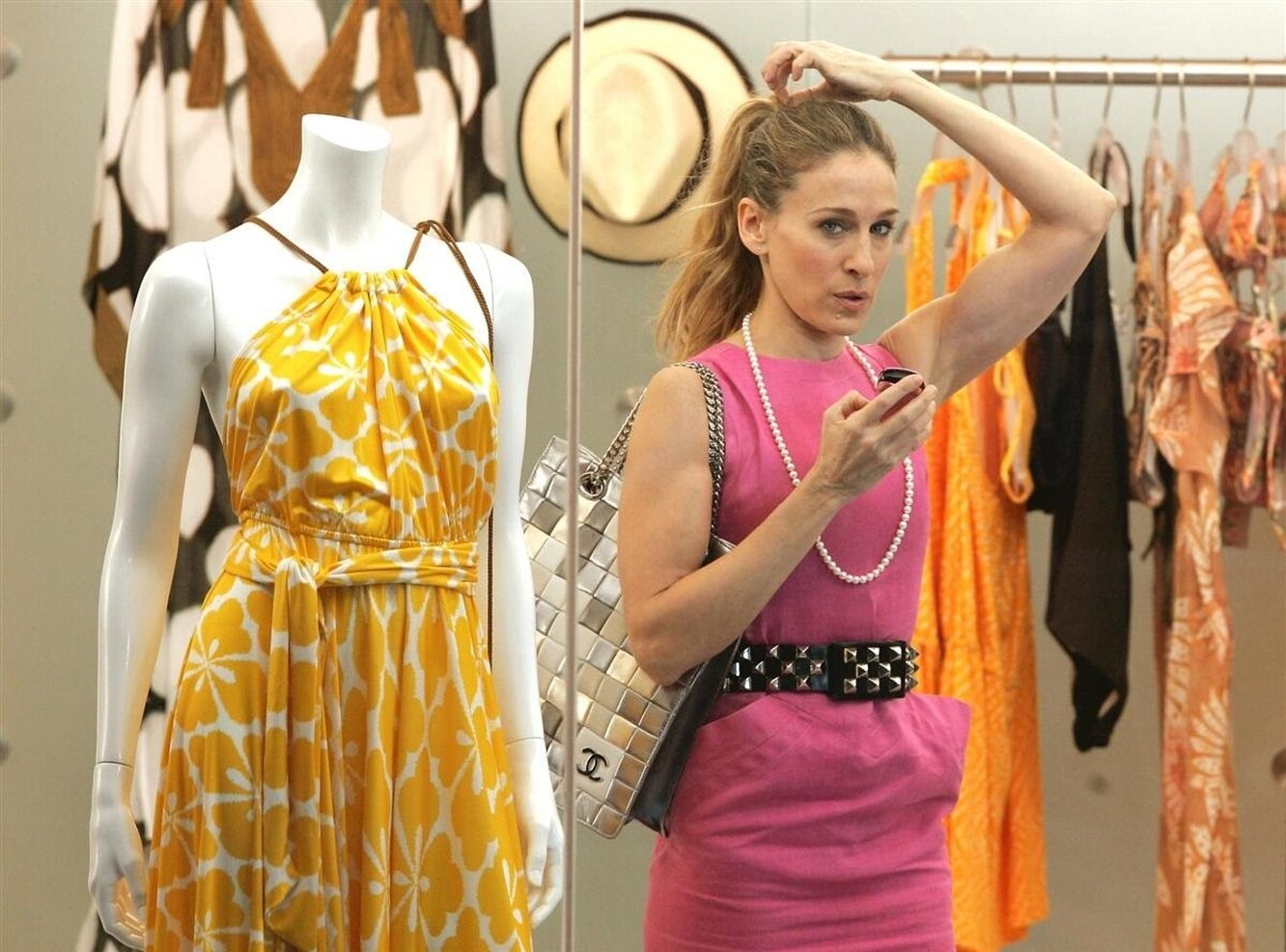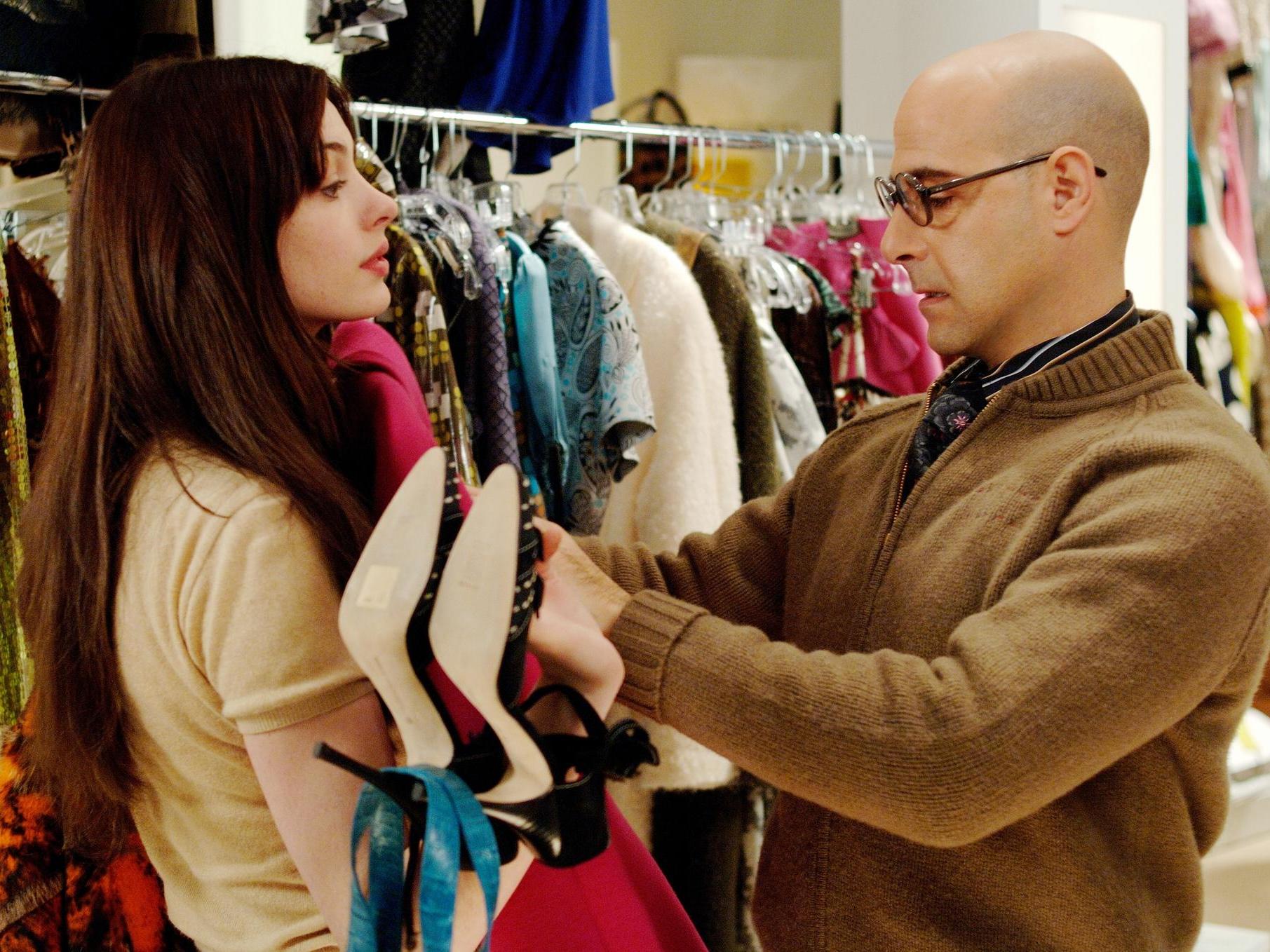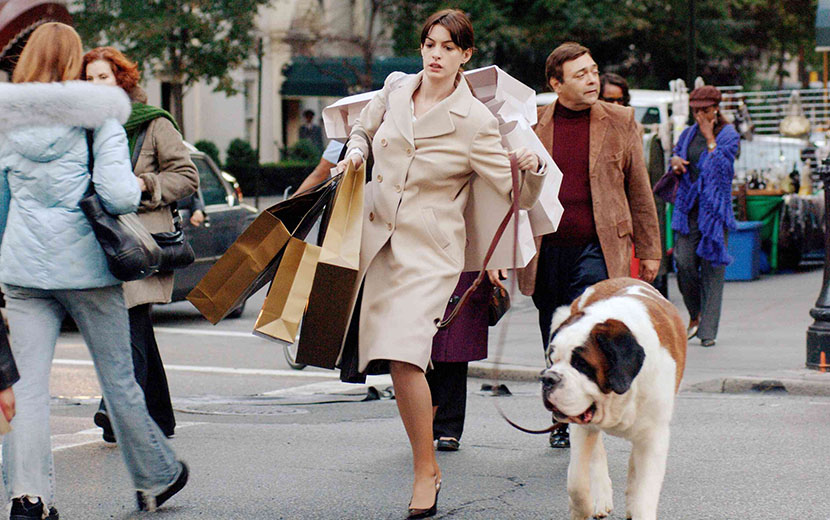We advise all shopaholics led by Carrie Bradshaw to get ready because today we have analyzed your favorite pastime. And yes, if you regularly try to brighten up a bad mood and all sorts of problems with a new dress or trendy skirt, this is just as true for you as the protagonist of Sex and the City.
The theme of impulsive shopping is often played in the cinema. Lily from How I Met Your Mother and multiple debts on credit cards, Gabrielle from Desperate Housewives who spent the last money updating her wardrobe, Blair Waldorf from Gossip Girl and many other women of your favorite movies and TV shows Think of your hero. But on the screen it all looks more fun and funny than dangerous and sad.
If, after reading the previous sentence, you have a question about how such harmless activity could cause harm, we would be happy to answer it. More precisely, not us, experts. To settle the painful issue definitively, we turned to psychoanalytic psychologist Anna Chukseeva, Yasno service psychotherapist Inna Tanchuk, and Yasno service gestalt therapist Yekaterina Artemenko for advice. In the material, they will tell you whether shopping really does help, what is negative, and how you can replace an “expensive” (not only heart, but also wallet) activity.
Is shopping a stress reliever?
Inna Tanchuk: Shopping brings immense pleasure: we meet friends, try different images, communicate, laugh, take pictures and forget about our worries for a while. Positive emotions and a change of activity are a great way to relieve stress. For example, after a family fight or a conflict at work, when we feel angry, uncomfortable, or resentful, shopping helps us move around and breathe out. Such leisure creates a positive attitude and allows us to “play” – to take a chance and feel the excitement. But it will not be possible to solve internal problems with pleasant purchases: this is just a charge to return to real life with renewed vigor.

Sometimes passive shopping is enough to cheer you up – browsing the websites of your favorite brands, pleasing to the eye, adding valuables to the cart but not buying anything.

When mobilization was announced, one of my clients threw a themed party. Everyone fell into fear and confusion, apparently this was a feast during the plague. In fact, the party helped many guests relieve tension and save their spirits. They prepared for a week, chose the images, then met – this gave them a sense of stability, helped them feel that they were not alone.
A profession not to be abused
Ekaterina Artemenko: Shopping easily turns into a shopaholic – a psychological addiction with an irresistible urge to buy. Compared to alcoholism, workaholism, food and sexual addiction, shopaholism appears to be more harmless because it does not cause obvious harm to a person’s emotional and physical health. But people often switch to other, far from safe, ways of shopping to get rid of stress quickly. When shopping is constantly saving, it’s not self-help, it’s escapism.

Such dependence can negatively affect the budget and relationships with others: close people have to lie, take loans, hide unnecessary purchases. As a result, the person has tantrums instead of pleasure, and there is just more trouble.

Most often, addictions develop due to traumatic situations in early childhood. In adulthood, the lack of parental warmth and love can feel like an emptiness inside you – accompanied by feelings of anxiety, fear, embarrassment or loneliness.
To better understand the causes of shopping addiction, it is worth analyzing what internal needs a person is trying to satisfy by buying an external need. These may be security, intimacy or recognition needs.

By identifying exactly what you want to ‘nurture’, such as the desire to be noticed and recognized by other people, you can understand when and where the crisis in meeting needs arises.
self rescue operation
Inna Tanchuk: Shopping on a harmless scale can be replaced by passive shopping or any other activity that gives pleasure but does not destroy you from the inside. It can be music, dancing, drawing, walking, meeting with friends. In difficult moments, it is better to ask for help from loved ones who will listen and share their experiences. A psychotherapist will help you explore difficult emotions and learn how to live them – creating a safe space where you will feel support and acceptance.

Ekaterina Artemenko: It is impossible to completely get rid of any stable addiction that has formed. You can research and tame this dragon.

This will require you to be honest with yourself, be mindful of your situation, and perhaps seek help from a specialist or therapeutic community. Here are a few questions to ask yourself before you make your next purchase or order online.
Source: People Talk
Elizabeth Cabrera is an author and journalist who writes for The Fashion Vibes. With a talent for staying up-to-date on the latest news and trends, Elizabeth is dedicated to delivering informative and engaging articles that keep readers informed on the latest developments.





